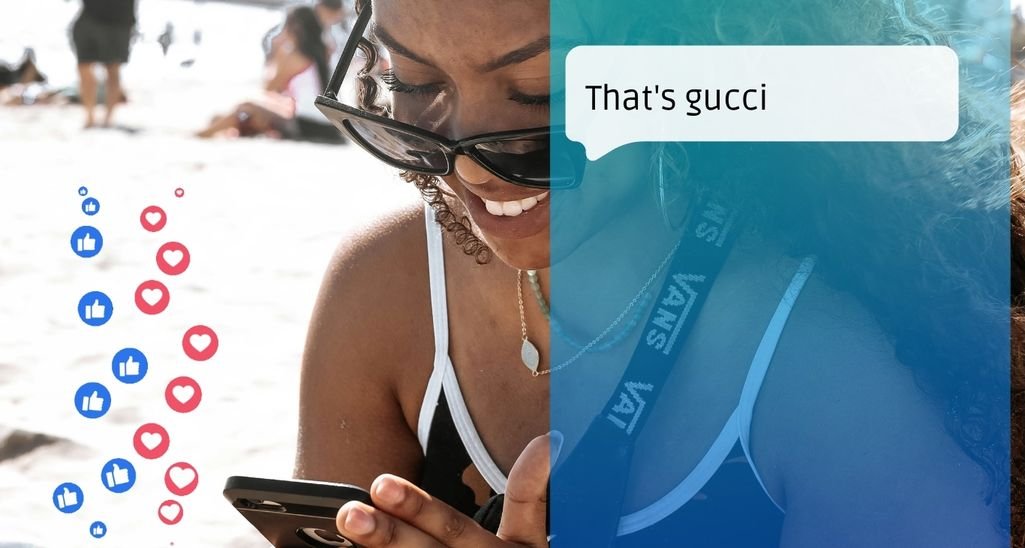The word “Gucci” has transcended its origins as a brand name to become a ubiquitous term in modern slang. While many associate it with the world of luxury fashion, its current usage reflects a broader cultural shift in how we communicate.
Let’s delve into the fascinating trajectory of “Gucci,” exploring how it morphed from a fashion house label to a popular slang term signifying approval, excellence, or anything positive.
The Genesis of Gucci
Founded in the late 1800s by Guccio Gucci, the Gucci brand has long been synonymous with the pinnacle of Italian craftsmanship and luxury fashion.
Known for its iconic ‘double G’ logo, Gucci has adorned the world with its exquisite lines of clothing, fragrances, jewellery, and watches, under the creative direction of renowned designers like Tom Ford.
The brand’s commitment to quality and style has cemented its status as a benchmark in the high-end fashion industry.
Gucci in the Fashion Lexicon
The term “Gucci” began its linguistic metamorphosis in the fashion world, where it was used to describe something as “fancy” or “very fashionable.”
This usage was notably captured in a 1999 issue of Harper’s Bazaar, where musician Lenny Kravitz described his stylish liquid-blue bedroom as “very Gucci.”
This fashion-forward connotation laid the groundwork for the word’s broader application in everyday language.
The Evolution into Slang
Gucci’s leap from a luxury label to a slang term epitomises its versatility and widespread appeal.
In contemporary slang, “Gucci” signifies more than just fashion; it conveys a sense of excellence, greatness, or coolness.
It’s a positive affirmation, used to express satisfaction or approval.
For instance, in response to a suggestion or an idea, one might say, “Yeah, that’s Gucci,” indicating enthusiastic agreement.
The Nuances of “Gucci”
The beauty of “Gucci” as slang lies in its adaptability. It can seamlessly replace words like “good,” “fine,” or “great” in a sentence, adding a playful twist to everyday conversations.
This auditory similarity to “good” has propelled its use in various contexts, from casual chats to social media posts, where it adds a touch of flair and positivity.
Gucci in Digital and Youth Cultures
The digital age and the rise of youth culture have played pivotal roles in propelling “Gucci” into the slang spotlight.
Online communities and social media platforms have embraced the term, using it to describe anything deemed favourable or impressive.
Its widespread recognition among younger generations underscores its status as a contemporary cultural phenomenon.
Navigating the Slang Landscape
As with any slang, understanding the context and nuances of “Gucci” is key to its effective use.
While it’s a versatile term that can add a modern twist to conversations, it’s important to gauge the appropriateness of its use based on the audience and setting.
Engaging with the evolving language of slang can be a fun way to connect with different cultures and age groups, and “Gucci” is a prime example of how a word can transcend its original meaning to become a vibrant part of our linguistic tapestry.
Whether used as a casual affirmation or a symbol of aspirational living, “Gucci” has undoubtedly cemented its place in the modern lexicon, serving as a linguistic emblem of our times.
You might also like:


